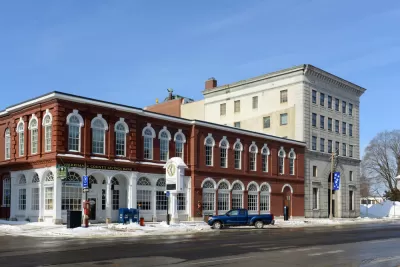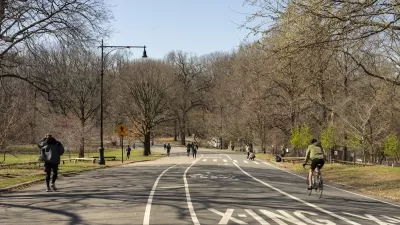Architects are uniquely positioned to reduce global warming, argues the CEO of Urban Green Council—but first they need to rethink their role.

Urban Green Council, a New York City-based nonprofit, seeks to make cities more sustainable by improving their building stock. Since it was founded in 2002, the organization has played an important part in the development of ambitious government policies in its hometown. One of these, Local Law 97, broke new ground in climate legislation earlier this year by setting carbon emissions caps for buildings over 25,000 square feet.
In an interview with The Architectural League of New York, Urban Green CEO John Mandyck says that architects have a critical role to play in reducing building emissions, but that to realize this potential, they need to shift from designing new buildings to retrofitting existing structures, as well as educating owners about the benefits of green design—and the risks associated with inaction.
"I think the market completely overlooks the fact that New York has $3 trillion of insured coastal properties. That’s twice the GDP of Canada," he said. "From a value preservation standpoint, we have a lot at stake in the existing built environment that is completely at risk to climate change. Architects can help building owners understand the economic benefits of a low-carbon building in a way that others may not be able to do."
FULL STORY: To combat climate change, focus on existing buildings

Planetizen Federal Action Tracker
A weekly monitor of how Trump’s orders and actions are impacting planners and planning in America.

Congressman Proposes Bill to Rename DC Metro “Trump Train”
The Make Autorail Great Again Act would withhold federal funding to the system until the Washington Metropolitan Area Transit Authority (WMATA), rebrands as the Washington Metropolitan Authority for Greater Access (WMAGA).

The Simple Legislative Tool Transforming Vacant Downtowns
In California, Michigan and Georgia, an easy win is bringing dollars — and delight — back to city centers.

The States Losing Rural Delivery Rooms at an Alarming Pace
In some states, as few as 9% of rural hospitals still deliver babies. As a result, rising pre-term births, no adequate pre-term care and "harrowing" close calls are a growing reality.

The Small South Asian Republic Going all in on EVs
Thanks to one simple policy change less than five years ago, 65% of new cars in this Himalayan country are now electric.

DC Backpedals on Bike Lane Protection, Swaps Barriers for Paint
Citing aesthetic concerns, the city is removing the concrete barriers and flexposts that once separated Arizona Avenue cyclists from motor vehicles.
Urban Design for Planners 1: Software Tools
This six-course series explores essential urban design concepts using open source software and equips planners with the tools they need to participate fully in the urban design process.
Planning for Universal Design
Learn the tools for implementing Universal Design in planning regulations.
Smith Gee Studio
City of Charlotte
City of Camden Redevelopment Agency
City of Astoria
Transportation Research & Education Center (TREC) at Portland State University
US High Speed Rail Association
City of Camden Redevelopment Agency
Municipality of Princeton (NJ)





























